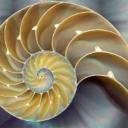ASTR BC 1753x Lecture Notes - Lecture 6: 2 On, Orbital Period
64 views1 pages
9 Sep 2016
School
Department
Course
Professor
Document Summary
At 25 years during 18 months while cambridge was closed due to the plague, newton developed mathematical calculus, founded optics, the science of light propagation, initiated work on mechanics. No (mass differs for all objects even though acceleration stays the same, so the force differs as well) The force of gravity on earth depends on your mass. The acceleration due to earth"s gravity is 9. 8 m/s each second, or g = 9. 8 m/s^2. G is a fundamental constant = 6. 67 x 10^-11 m^3/ (kg s^2) a number that is the same at all times, everywhere in the universe. M1 and m2 are the masses of the two objects (often written m and m) D^2 is the distance between the two objects squared. Jupiter is 318 times the mass of earth. No (because we have to consider the distance to the center of jupiter) Yes (force of gravity is mutual, each is acting on the other)
Get access
Grade+20% off
$8 USD/m$10 USD/m
Billed $96 USD annually

Homework Help
Study Guides
Textbook Solutions
Class Notes
Textbook Notes
Booster Class
40 Verified Answers
Class+
$8 USD/m
Billed $96 USD annually

Homework Help
Study Guides
Textbook Solutions
Class Notes
Textbook Notes
Booster Class
30 Verified Answers





